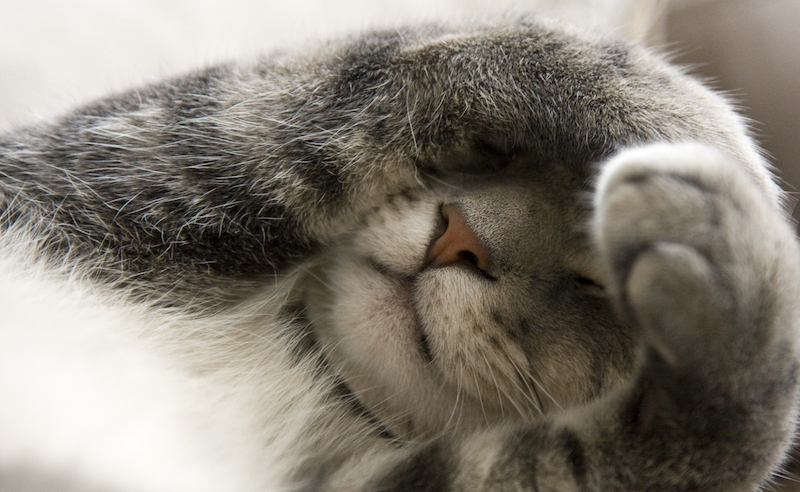Flatulence is the result of excess gas accumulating in a cat’s digestive tract, as a result of eating to quickly or types of food that can produce excess gas. Flatulence can also occur as a result of some type of disorder with the stomach or intestine. Though it is not very common in cats, flatulence does occur, and it can be a source of worry for owners who are not familiar with why it occurs and what can be done about it.
Having a little bit of gas is normal and a natural part of digestion, but in most cases the amount of gas or trapped air (as a result of eating too quickly) will pass without much fuss; however, if the gas is excessive, and is accompanied by foul odor, it could be the sign of potential problems with your cat’s digestion.
Causes of Flatulence in Cats
There are many reasons for the accumulation of excess gas in a cat’s digestive tract; however, there are reasons that are more common than others. The below list includes the reasons that are most often the culprit.
- A diet high in grains or fiber
- Milk, or any other dairy products
- Eating too fast or too much
- Food-related allergies
- Parasites
- Spoiled or spicy food
Signs of Flatulence
Since an overwhelming majority of gas in the digestive tract is odorless, it is important to know the signs of flatulence so that you can seek proper veterinary care for your cat, if necessary. If one or more of the below symptoms occur, it might be a good idea to seek the opinion of a veterinarian.
- Passing gas excessively
- Stomach noises and rumblings
- Bloating in the abdominal area
- Vomiting or diarrhea
If you notice any of the above signs, and end up at the veterinarian you can expect questions about your cat’s diet and other eating habits, followed by a physical exam, and possibly blood, feces and urine test—there might be further tests and recommendations if the initial tests don’t produce results.
How to Prevent Flatulence
Even though there isn’t a sure-fire cure for flatulence, there are many things a cat owner can do to reduce the chances of excessive gas being trapped in the stomach or intestines of a cat.
- As directed by your veterinarian, change your cat’s diet away from high grain and fiber foods to options which are more easily digestible for your feline.
- Instead of feeding your cat once per day, split up the feedings into several smaller portions.
- If you have more than one cat, it is advisable to feed them in separate areas where they don’t have access to the food of other members of the family which may result in overeating.
- Make sure that your cat is not getting into the garbage, resulting in the ingestion of old or spoiled food.
- Giving your cat a proper amount of exercise can also help prevent excess gas from developing in the stomach and intestines.
Always seek the advice of your veterinarian in order to make proper decisions based on expert advice.

